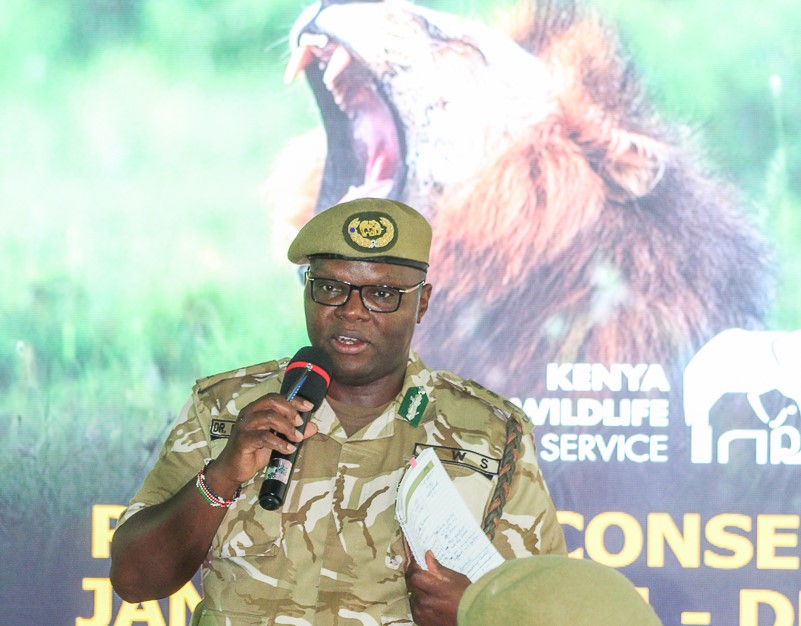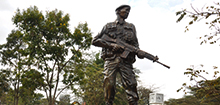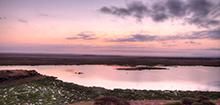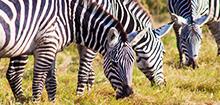
Date Published:
In a world where natural resources are under increasing strain and the need for sustainable practices has become more urgent than ever, on August 17th, 2023, the Director General of the Kenya Wildlife Service, Dr. Erustus Kanga, convened a validation forum to review the proposed fees for National Parks, Reserves, and Sanctuaries for the period 1st January 2024, to 31st December 2025 at the Nairobi National Park Club House.
In the ongoing effort to balance conservation needs with the economic realities of managing these natural resources, the discussion marked a pivotal moment. The validation forum, comprising of experts, stakeholders and concerned citizens, aimed to assess the effectiveness and explore potential adjustments to the proposed park entry fees for locals and foreigners, to support the preservation of these precious ecosystems as well as KWS’s operation costs.
Speaking during the event, Dr. Kanga acknowledged the rich biodiversity and ecological wonders of Kenya’s natural resources. He, however, stated that maintaining these sanctuaries comes at a cost; entrance fees therefore play a critical role in funding conservation initiatives and finding the right balance between affordability for visitors and adequate revenue generation for park management has become imperative.
In alignment with the government’s Bottom up Economic Transformation Agenda (BETA), which seeks to ensure that benefits of all sectors permeate every societal level, Dr. Kanga stated that KWS strives to intertwine its conservation objectives with Kenya’s broader developmental aspirations.
The DG emphasized on KWS’s mandate - the preservation of Kenya’s treasured wildlife resources and alignment to the broader economic transformation goals. The Director General stated that the Service’s scope is expansive, with 25 terrestrial national parks, 29 terrestrial national reserves, 4 marine national parks, 6 marine national reserves, 6 national wildlife sanctuaries, and 3 captive wildlife management facilities. In addition to this colossal responsibility, KWS ensures the security of the precious wildlife, safeguards visitors, and plays a pivotal role in conservation education and training.
Addressing the Wildlife Conservation and Management Act (WCMA) 2013 and the introduction of the visionary plan advocating for seasonal conservation fees and digitization of bookings and entry processes by the Ministry of Tourism across all KWS realms, Dr Kanga said that these new rates are intended to amplify the tourism experience across Kenya’s diverse landscapes.
During the discussions, the stakeholders engaged in discourse touching on the sustainability and conservation financing, community engagement and empowerment, technological innovations and international collaborations. One highlight was the discussion on the potential impact of the revised conservation fees on local tourism, to which he responded by saying that these fees aim to foster the sustainability of the parks with the aim of enhancing their experience through the introduction of new products.
Among the focal points of the forum was the extensive deliberation on the underpricing of the Kisite and Mombasa Marine parks. The current rates were perceived as too low when measured against the kind of services provided and the Service’s extensive, effective conservation input. Participants emphasized on the need to revise these parks’ pricing to reflect their ecological significance, while still ensuring the satisfaction of the people who visit them.
During the discussions, participants called for the formation of a global trustee board. Speaking on the importance of this initiative, Mr. Mohammed Hirsi emphasized on the potential benefits of an international collaboration in safeguarding Kenya’s unique and diverse wildlife. He stated that representation across the globe would champion and contribute to resources and funding initiatives aimed at enhancing conservation efforts and at the same time create an avenue for philanthropic activities.
With the stakeholders urging KWS to diversify and improve their service delivery and products to enhance customer experiences, they acknowledged Kenya’s significance as a safari destination and advised the Service to consider gradual increment of park fees as they cross check the big 7 tourist destinations in Africa, such as South Africa.
In his closing remarks, Dr Kanga promised to embark on a transformative fee review that envisions a future where conservation, tourism and community well-being intertwine seamlessly. He stated that this initiative is a testament to KWS’s dedication to the adoption and innovation in the face of complex challenges, driven by a strong belief in collaboration and forward thinking strategies that benefit both the government and the private tourism sectors .
As the forum concluded, Dr. Kanga expressed his gratitude to the stakeholders on their immense and crucial discussions centered on global collaboration, rule enforcement in a bid to combat irresponsible client behaviour within the parks as witnessed recently, and service improvement. The DG said that these discussions laid a foundation for driving positive change in future conservation initiatives.





